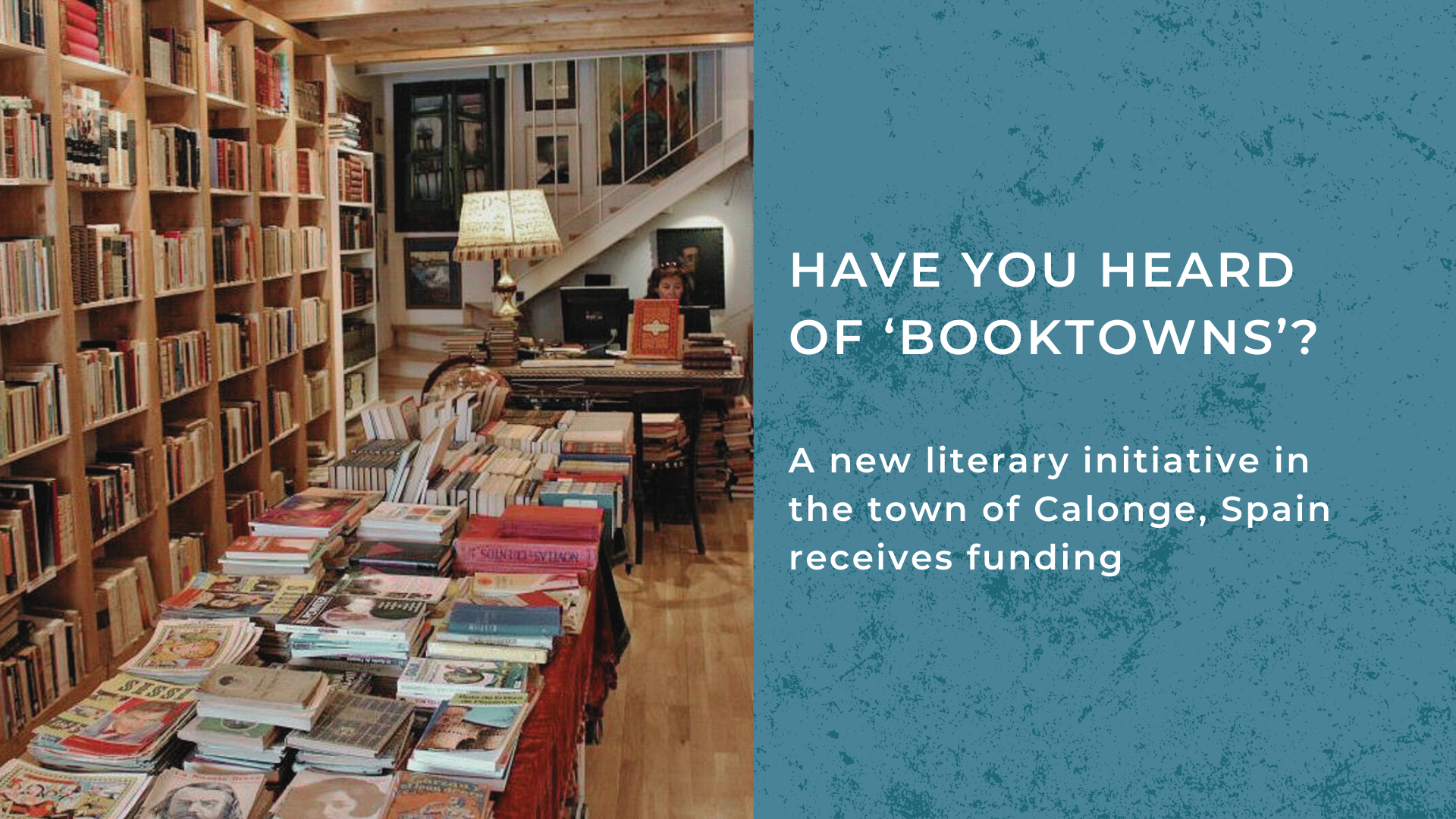During the Covid-19 pandemic many Europeans have (re)discovered a passion for reading books. When presented with an array of items and asked whether these “belonged to culture”, 80% of Europeans in the INVENT survey voiced that they regarded ‘literature’ as definitely belonging to culture. It is not surprising therefore that ‘access to public libraries’ and ‘being able to attend literary fairs’ was additionally mentioned among the cultural activities missed most during the pandemic.
Notwithstanding, reading books is perhaps not the first thing thought of when it comes to a social cultural activity that has the potential to gather and unite large groups of people. Yet, one to whom the hobby may appear as nothing more than an amusing but solitary pastime, might be surprised to learn of the existence of entire ‘booktowns’.
Intending to revitalize the socio-economic and cultural activity of the old town of Calonge (Costa Brava, Catalonia, Spain), the city council has decided to become one of the first ‘Booktowns’ in Catalonia, its opening ceremony taking place in December 2021. A previous initiative has already been implemented in Ureña (Valladolid, Spain). Other European Booktown initiatives are currently running in Hay-on-Wye, Wales (United Kingdom), Montolieu (France) and Fjærland (Norway) and have become a model of success in the reactivation of the economy and social life.
So what does this concept of Booktown entail?
A Booktown intends to recover and convert public spaces as places for buying and selling books and hosting cultural events related to the literature. Thus, along its streets we can find bookstores, museums of stories, old books, comics museums, or even a wine library where one can enjoy perusing the shelves accompanied by glass of wine. As with the booktowns in other European places, the town of Calonge hope to become a cultural center and to attract an influx of cultural tourism.
The Calonge city council has offered 10,000 euros to seven entrepreneurs who desired to open a bookstore in the old part of the municipality. Additionally, the City Council’s plan involves offering up to 6,000 euros to hire personnel, 50% subsidies in the rehabilitation of the bookstores’ buildings, and an initial 90% discount on the activity license fee. City Council will also help in management, digitization, and training needed to develop business.
This aligns with our findings from the INVENT survey which confirm that many Europeans deem such initiatives as important recipients for public funding. Survey respondents have noted that they find it either important or very important that areas such as ‘Museums and libraries’ (83%) and ‘Cultural and community centers’ (73%) receive public funding. Though ‘Promotions of cultural offerings for tourists’ is considered a less important area for public funding of culture overall, still 63% consider this worthy of funding.
The initiatives being implemented in the town of Calonge illustrate the multifaceted nature of booktowns. They combine preservation of cultural stories and heritage akin to traditional libraries, with creating a sense of community and fostering the positive constructive spirit of cultural centers; all while attracting touristic intrigue often welcomed by these more provincial towns.
Have you ever visited a booktown; if so, what was your experience?
Do you have an alternative cultural activity or hobby that you wish an entire town would be dedicated to?
Let us know in the comments of the post on our social media!



 This project has received funding from the European Union’s Horizon 2020 research and innovation programme under grant agreement No
This project has received funding from the European Union’s Horizon 2020 research and innovation programme under grant agreement No
Leave A Comment